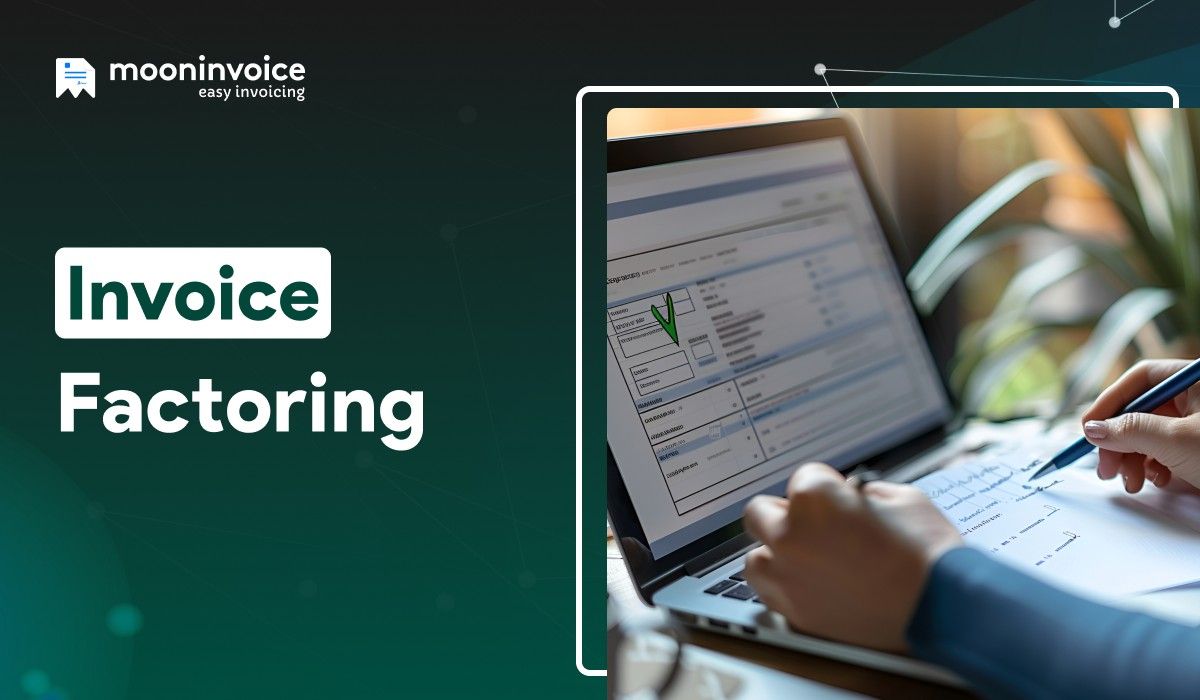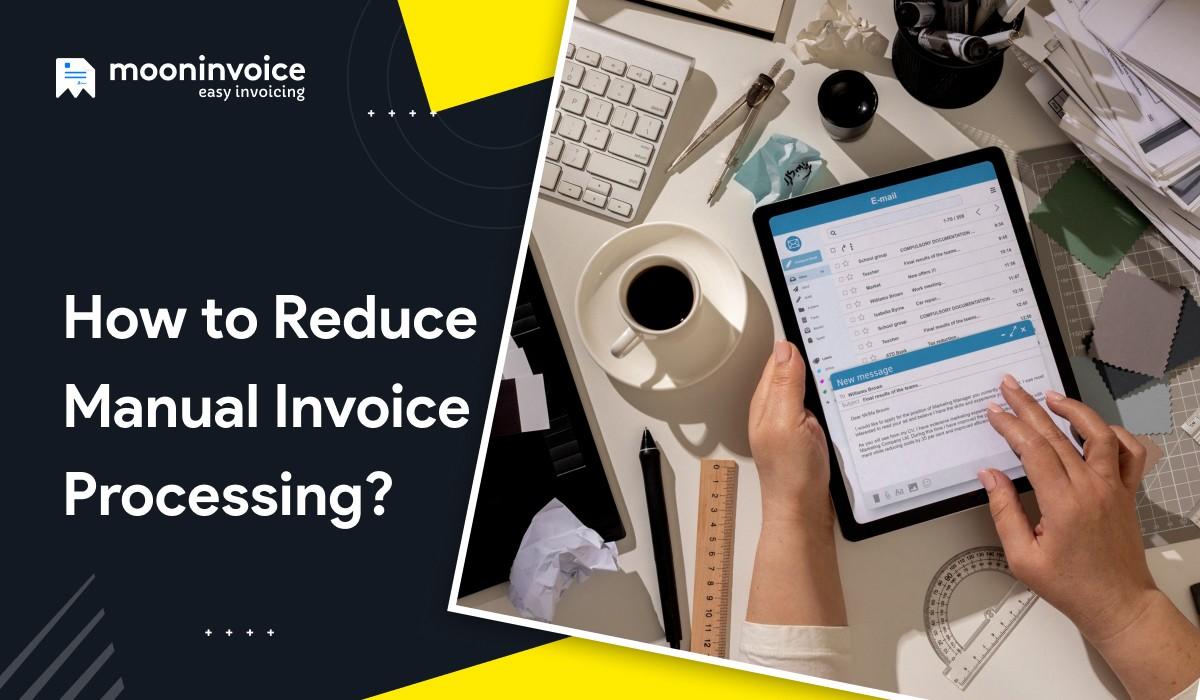Invoice Factoring Definition
Invoice factoring is a process to sell unpaid invoices to a third party in a bid to get quick cash (in advance).
We understand the pain of waiting weeks or months to receive payment. It becomes even more frustrating when your business is growing rapidly, and cash flow issues suddenly hit your daily operations.
But, do you know there is a way to pull out quick money? We ain’t kidding. There is a process called invoice factoring that makes sure you get enough money to keep your business up and running. That’s why many businesses opt for factoring invoices, and as a result, the invoice factoring market could soar to roughly $5348.63 billion by 2029.
You may have heard about small business invoice factoring, but you wouldn’t know what it entails. Alright then, time to uncover what is invoice factoring and how does invoice factoring work.
What Is Invoice Factoring?
Invoice factoring is a financial process that involves selling unpaid invoices to a factoring company in order to obtain cash in advance. The method is a part of receivables financing that allows businesses to sell all outstanding invoices to another company in exchange for cash.
Later, the factoring company reaches out to the customers to collect the payment. Once the invoice is paid, the factoring company sends the remaining money to the business, after subtracting its fee.
Invoice factoring (or accounts receivable factoring) is designed for small to mid-size businesses issuing invoices with payment terms like net 30 or net 60. It aids businesses to gain working capital in a very short time without even applying for a bank loan or borrowing money from lenders.
Convert Due Invoices into Paid Ones Painlessly
Let Moon Invoice help you create professional-looking invoices that get paid without extending your wait times.
How Does Invoice Factoring Work?
Here’s how small business invoice factoring works in simple steps.
- You will sell your unpaid invoices, which would have been generated at the time of selling goods or services to the factor.
- The factoring company will pay you a percentage of the invoice amount (usually 80-90%) as soon as they are done collecting invoices.
- The factor nudges your customers to clear the outstanding invoice as soon as possible.
- Once your customers have cleared their pending dues, the unpaid invoices are converted into paid invoices, prompting the factor to remit the collected funds to the business.
- The factoring company will later pay the remaining invoice balance to you after taking off their agreed-upon fee.
💡Also Read:
When Should You Use Invoice Factoring?
If you are wondering what’s the right time to use it, let us guide you when to use it.
1. High Unpaid Invoices
When you see a high volume of unpaid invoices, it makes sense to use invoice factoring, so you can continue operating your business without stretching your budget plan. If invoices are not paid and they are piling up on your office desk, you can consider this method.
2. Cash Flow Problems
Businesses can opt for factoring invoices when battling cash flow problems. Taking up this approach can save you from cash crunches and ensure you run your core operations normally. The factor provides you with the cash in a way that your cash flow issues immediately disappear.
3. Growth or Seasonal Opportunities
If you see money-making opportunities coming your way, it’s best to factor invoices rather than missing out due to negative cash flow. If you approach peak season and still can’t get rid of unpaid invoices, you must go with invoice factoring and sort out the cash issues.
Invoice Factoring Example
Let’s understand the invoice factoring meaning by using an invoice factoring example. A small manufacturing company, BrightTech Supplies, acquires a huge order from its new customer. Now, they need to buy more materials, but they are dealing with cash problems due to late payments. Plus, the client wishes to pay an invoice only after two months.
Now, BrightTech Supplies turns to Swift Capital Factoring to get quick cash and deliver what they promise to their client. The factoring company advances 85% of the invoice value right away, so BrightTech Supplies can keep its production running.
After two months, when clients pay the invoice, Swift Capital sends the remaining 15% to BrightTech Supplies, minus the factoring fee.
Advantages of Invoice Factoring
Invoice factoring for small businesses is really helpful, especially when dealing with constant late payments. Here are some of its perks.
1. Instant Cash
One of the key advantages of factoring invoices is that you get instant cash from the factor within 24 hours or less. So, there is little to no waiting time for obtaining the cash, helping you fulfill your production requirements. Hence, you can continue producing more units and deliver them to clients in a timely manner.
2. Approval in Minutes
Unlike bank loans, you no longer need to wait for months seeking approval from the factoring company. They could take one day to assess and approve your request. Following quick approval, the company will soon ask for all pending invoices to dispatch the cash as early as possible.
3. No Credit Score Barriers
This approach is quite easier because here your credit history doesn’t really matter. No factoring company will assess your credit score; rather, it considers your customer creditworthiness. Therefore, in case you have a bad credit score, factoring invoices is worthwhile than applying for a bank loan.
4. Less Administrative Burden
Since you ask a third party to take care of late payments, you no longer have the extra workload of managing administrative tasks. The factoring company will be responsible for approaching slow-paying clients and recovering the pending dues. This means you can concentrate on serving clients and growing your business.
5. Protection Against Bad Debts
The factor also provides non-recourse factoring, which further eliminates the risk if customers don’t pay invoices. Therefore, even if your customers fail to pay, you are protected because the factoring company incurs the loss. As a result, you are safeguarded from potential losses in a way that doesn’t disrupt your business cash flow.
Disadvantages of Invoice Factoring
Now, let us see what are the downsides of factoring invoices.
Fear of Sharing Sensitive Information
A big concern with this approach is that you will hand over all the sensitive information to the third party. They will get access to invoicing and payment details like customer records, invoices, and bank transactions. Something which could land you in trouble if client confidentiality is compromised.
No Guarantee Your Customers Will Pay
There will always be a doubt regarding your customer payments. You won’t be sure whether they will really pay their dues. Since there is uncertainty looming over payments, invoice factoring becomes less effective. Ultimately, you may have to look for other financing options that are worth considering.
Higher Factoring Fees
The sky-high factoring fees could badly impact your overall budget plan. They may charge 4-5% extra fees for allowing you to get access to quick cash. This could lead to long-term financial strain for small businesses. In addition to that, businesses are required to pay administrative fees as well.
Fast-track Your Payment Collection With Moon Invoice
Use our AI-powered invoicing software, Moon Invoice, to create accurate invoices and encourage your clients to pay quickly.
Invoice Financing Vs. Invoice Factoring
Invoice financing or invoice discounting is all about borrowing money from a finance company by selling outstanding invoices at a discounted rate. While invoice factoring is the process of selling unpaid invoices to a factoring company, which later collects the payment from your customer.
If you are using invoice financing, the customer would not be aware, and they will pay you as usual. But, when it comes to invoice factoring, customers quickly learn that they have to pay the hired factoring company instead of your business. With invoice financing, fees are lower, but you pay higher fees when switching to invoice factoring.
You can opt for invoice factoring in case you don’t mind someone else taking care of your invoicing and payments. Otherwise, choose invoice financing to obtain the much-needed cash.
Ending Note: Invoice Factoring
Invoice factoring is an ideal choice for small businesses struggling with cash flow and slow-paying customers. This approach helps you acquire the working capital from a third party, so you can run your operations swiftly and deliver pre-booked orders on time.
However, the move comes with the hefty factoring fees that should not be overlooked before outsourcing your collection efforts. If you are fed up with late-paying clients, we recommend trying AI-enabled invoicing software, Moon Invoice.
The invoicing software tackles your daily invoicing hassles in a way that you spend less on admin-related tasks and more on growing your business. You can create paperless and professional invoices that get paid in no time. Want to try? Grab a free trial.














